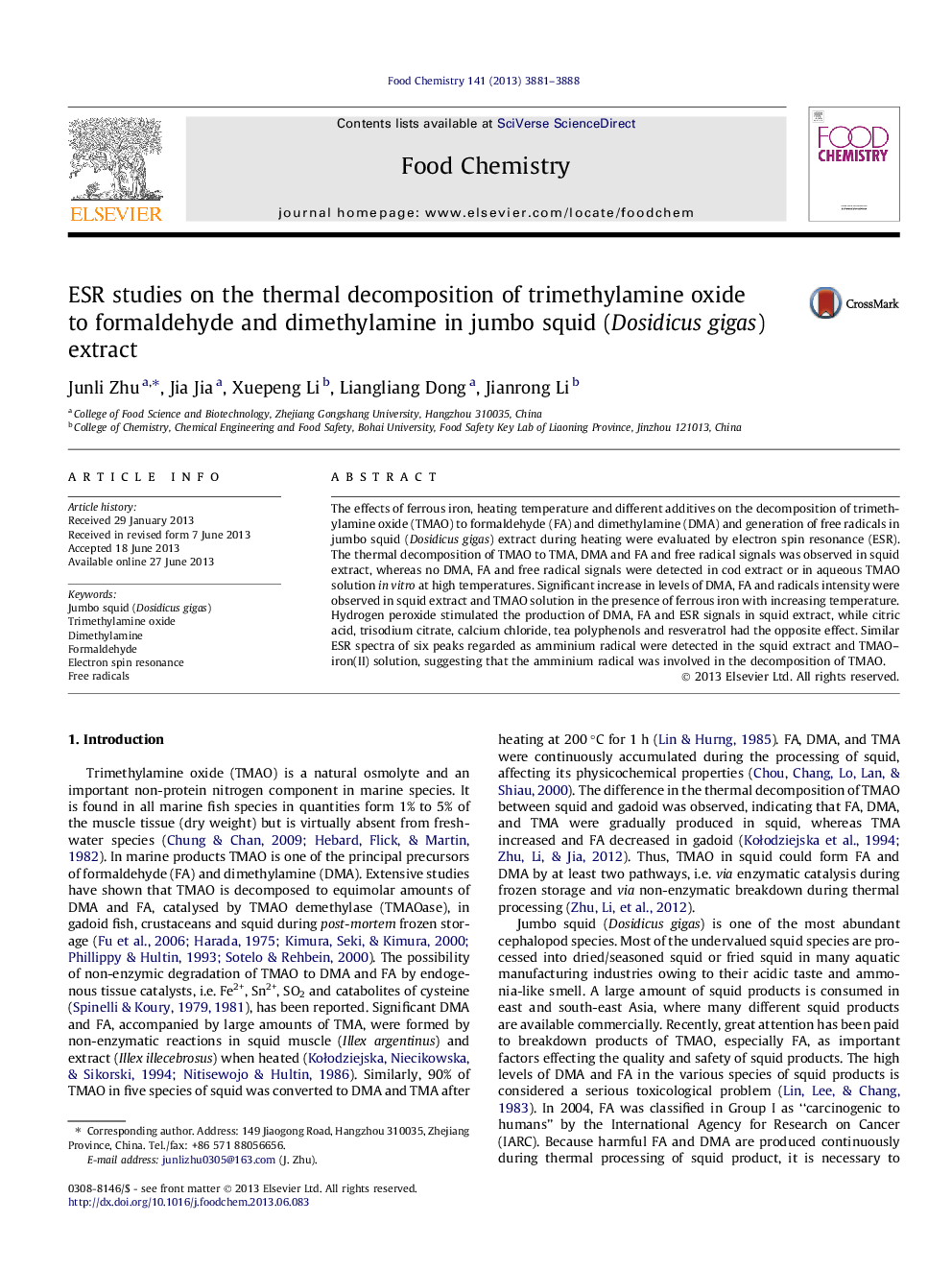| Article ID | Journal | Published Year | Pages | File Type |
|---|---|---|---|---|
| 10539865 | Food Chemistry | 2013 | 8 Pages |
Abstract
The effects of ferrous iron, heating temperature and different additives on the decomposition of trimethylamine oxide (TMAO) to formaldehyde (FA) and dimethylamine (DMA) and generation of free radicals in jumbo squid (Dosidicus gigas) extract during heating were evaluated by electron spin resonance (ESR). The thermal decomposition of TMAO to TMA, DMA and FA and free radical signals was observed in squid extract, whereas no DMA, FA and free radical signals were detected in cod extract or in aqueous TMAO solution in vitro at high temperatures. Significant increase in levels of DMA, FA and radicals intensity were observed in squid extract and TMAO solution in the presence of ferrous iron with increasing temperature. Hydrogen peroxide stimulated the production of DMA, FA and ESR signals in squid extract, while citric acid, trisodium citrate, calcium chloride, tea polyphenols and resveratrol had the opposite effect. Similar ESR spectra of six peaks regarded as amminium radical were detected in the squid extract and TMAO-iron(II) solution, suggesting that the amminium radical was involved in the decomposition of TMAO.
Related Topics
Physical Sciences and Engineering
Chemistry
Analytical Chemistry
Authors
Junli Zhu, Jia Jia, Xuepeng Li, Liangliang Dong, Jianrong Li,
